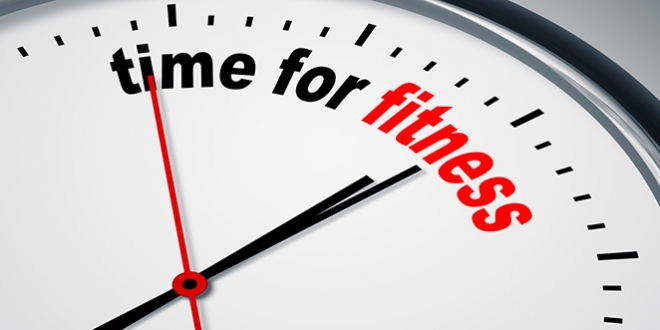Working out at home offers a lot of extra freedom than lugging a bag to the gym every day. Fighting traffic, waiting in line for equipment and of course; paying out the nose every month on membership fees!
But, just because you’re working out in the comfort of your own home doesn’t mean the results will come any easier. Not if you don’t mind your P’s and Q’s.
In order to maximize results and achieve your goals in the shortest time possible, there’s more to working out than jumping on your equipment and going all out until you’re exhausted.
Follow these 7 simple rules for getting the most out of your home workouts, and you’ll be in the best shape of your life in no time:
Save the Carbs for Later
There’s a number of reasons to eat your carbs later in the day. Contrary to what we’ve been taught over the years; eating lots of carbs in the morning just after we wake up raises blood sugar much more than if the same amount of carbs were eaten later, before and after working out.
This is because cortisol (stress hormone) levels rise sharply a few hours before waking and for several hours after we wake up. Cortisol causes the liver to release more of its stored sugar. Too much sugar in the blood leads to more fat storage.
So, save the carbs for later, shortly before you work out and later after you’ve finished your workout when the body will use them to replenish glycogen rather than make you fat!
Start the Day with Protein and Fats
Going hand-in-hand with the first tip, you should start the day off with more protein and fat. Yes, we all need fats to survive and thrive. The body actually needs both early in the morning, for a number of essential processes.
We need protein after fasting overnight to prevent muscle catabolism and to continue healing from the previous workout. In the case of dietary fats, the body doesn’t convert fat that’s consumed into stored fat around the waistline very well.
What the body does do well, in the absence of carbs, is use that dietary fat as energy, giving you the boost you need until your evening carb meals. We also need fats to absorb several essential vitamins including vitamin A, B-complex vitamins, and vitamin D.
Drink 2 Liters of Water Per Day
If 2 liters proves to be too much for you (i.e., far too many bathroom visits), consume as much as you can tolerate. Remember that coffee, tea, juices, smoothies, etc., all count toward our daily water intake too.
We don’t need gallons of water like you’ll hear a lot of “experts” talking about, but mild dehydration leads to poor physical and mental performance. Not getting enough water can also hinder the fat-burning process.
Workout in the Evening
Years ago, we were all told that morning workouts were best because they help to burn more fat since we haven’t eaten for several hours. And, that testosterone levels, in both men and women, are higher in the morning which leads to better muscle growth and faster recovery.
These myths have long been disproved, and if you ask most athletes what they prefer, most would say evening workouts. Since you’ll have eaten your first carb meal shortly beforehand and had a full day to shake out the cobwebs from last night’s sleep, you’ll have more physical and mental energy.
Aim for 4 – 7 pm and no later or you’ll be messing with sleep quality!
Make it Short and Intense
If you’re main goal is weight loss, there’s nothing wrong with working out at a moderate pace on the cardio equipment for at least an hour. However, the harder you work, keeping your heart beating at 85% your maximum heart rate, the more calories you’ll burn. It all depends on preference and how hard you’re willing to go at it.
From a muscle building perspective, the shorter and more intense you train, the more muscle you’ll gain. This concept has been echoed time and again by professionals and amateurs alike. For building muscle, get in and get out, training for no more than 40 minutes per workout.
Get 7 Hours of Sleep a Night
We need sleep to recover, regardless of why you’re working out. Getting 6 – 7 hours of sleep at night might be a pipe dream to most who read this. However, getting less is not only detrimental to your workout goals, it can also lead to a shorter lifespan!
The good news, for the movers and shakers of the world, is that sleeping much longer than 7 hours appears to shorten our lifespan too. So sleep just long enough, but not too long!
Rest at Least Two Days a Week
Humans are creatures of motion. When we stop moving, we start dying. However, when it comes to intense weight and cardio workouts, we definitely benefit from a couple of days off to recover. This is especially important if you’re putting in hard workouts in the home gym to build muscle.
If weight loss is big on your list of goals, you can still go out for a brisk walk or two, just don’t go jogging on the treadmill or climbing stairs on the Stairmaster for at least 2 days every week.
Good Luck!
Follow these 7 big tips and you’ll not only get better results from your home gym workouts, but you’ll live longer and feel better. Also, you’ll have more motivation to keep going when most other people get tired or bored and give up.
 Best Home Gym Reviews and Tips for Your Home Gym
Best Home Gym Reviews and Tips for Your Home Gym






